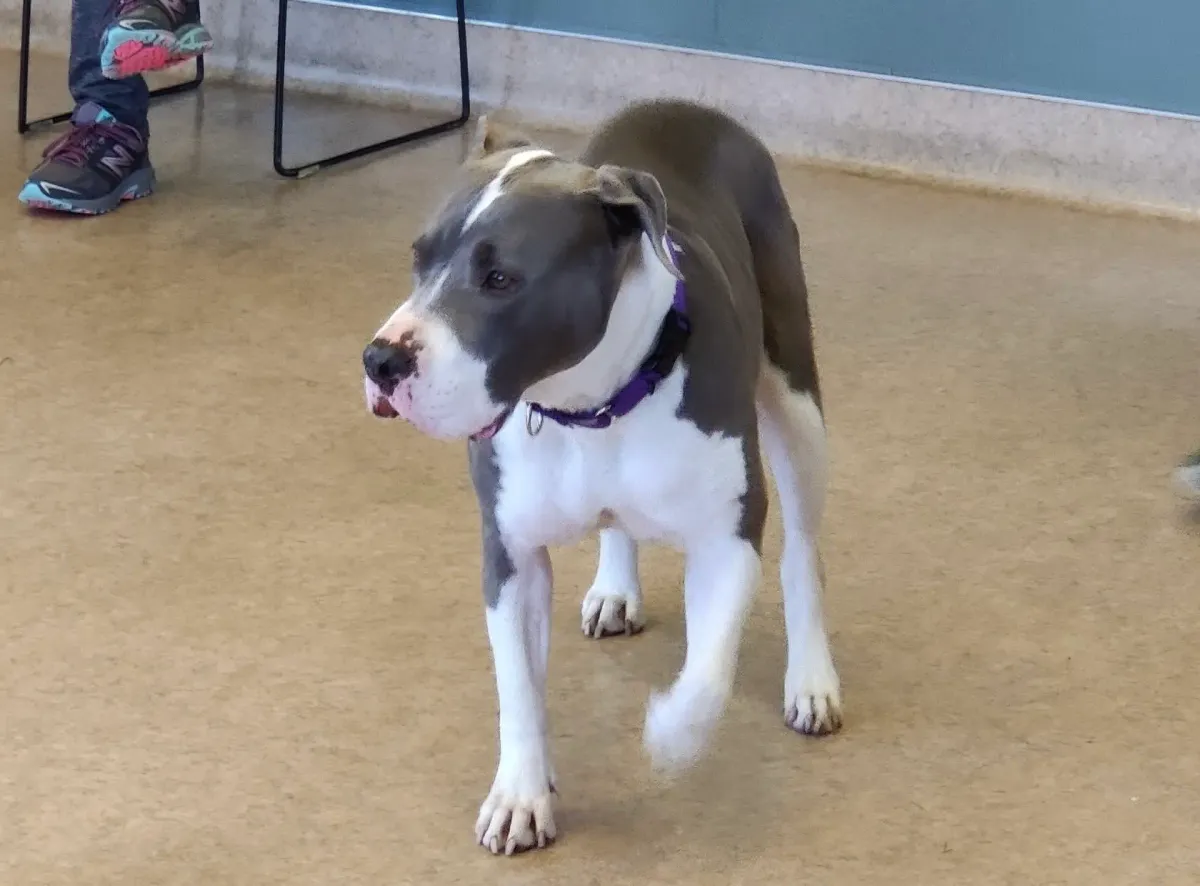94% found their new dog's behavior to be excellent or good
Shelter dogs get a bad rap sometimes from people who don't know any. They may be a little scruffy-looking and may not have the refined manners of their luckier cousins but a new study finds that 94 percent of shelter dog adopters find their dog's behavior excellent or good.
Like adolescent humans, shelter dogs may be a little rough around the edges at first, with stranger aggression and training problems reported by many owners. But those problems did little to detract from their new owners' overall satisfaction, according to the study published the open-access journal PLOS ONE by Kyle Bohland from the Ohio State University, and colleagues.
“This is one of the most comprehensive studies, using multiple timepoints, to investigate post-adoption behavior in dogs," the study authors said. "The findings help shelters counsel new dog guardians with more accurate information on what behavior changes to expect after adoption."
Lots of opinions, not much research
Although it seems that everyone has an opinion about shelter dogs, there's really not much research about how well they do in their new homes, even though two million dogs are adopted from US shelters every year.
Bohland and colleagues surveyed the owners of 99 dogs adopted from five Ohio shelters from October 2020-May 2021, checking in with owners seven, 30, 90, and 180 days after adoption.
In each iteration of the survey, dog owners were asked about the following problem behaviors, scoring each behavior as demonstrated by their dog from 0-4: excitability, stranger-directed aggression, owner-directed aggression, dog-directed aggression, familiar dog aggression, stranger-directed fear, nonsocial fear, dog-directed fear, touch sensitivity, separation-related behavior, attachment and attention-seeking, training difficulty, chasing, and energy levels.
The initial survey asked about basic demographic information and whether the owner had owned a dog before. Each of the four surveys asked owners about overall satisfaction with their dog’s behavior; any household changes since adoption; and if they still owned the dog.
Protective behavior increased
Most notably, owners reported an increase from the initial survey in stranger-directed aggression behavior at every subsequent check-in, which went from being reported in 62 percent of dogs at 10 days to 77 percent of dogs at 180 days—possibly because as dogs became more comfortable in their household, their protective/territorial behaviors increased.
Over the six months of the study, owners also reported more excitability, touch sensitivity, training difficulty, and chasing behaviors as compared to baseline. Reports of separation-related behaviors and attachment and attention-seeking behaviors decreased, presumably as the dogs became assured their owners would consistently return home.
Seven people returned their adopted dog during the study period.
Positive behavior also increased
Despite the ratings suggesting increases in undesirable behavior like stranger aggression and training problems, in the final survey 100 percent of responding owners reported their dog adjusted to their new home extremely or moderately well; 94 percent rated their dog’s overall behavior as excellent or good, six percent as fair, and no owner reported poor/terrible behavior. About 75 percent of owners said they thought their dog’s behavior had improved over time.
Sampling bias is potentially present in the results, since participating dog owners opted into the study (with gift cards offered for completion of the first and final surveys).
"This information will hopefully allow people to get help sooner for their dog’s behavior problems and keep more dogs in their adoptive homes.”
The full study is available at https://journals.plos.org/plosone/article?id=10.1371/journal.pone.0289356

